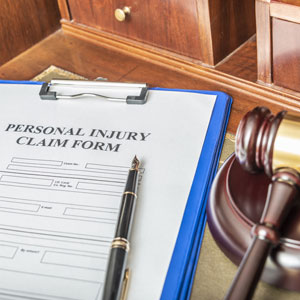
In this article, you can discover…
- How exaggerating or being inconsistent can seriously damage your claim.
- Why ignoring adjusters or avoiding communication can derail your case.
- The importance of evidence, and the types of evidence to gather.
Mistake One : Forgetting That Honesty Is Always The Best Policy
Maximizing personal injury compensation in your claim can be a fairly difficult thing to do, depending on the specific circumstances you’ve been dealt. For starters, it’s extremely easy to forget that the person you’re speaking to—whether it’s an insurance adjuster, attorney, or mediator—is documenting everything you say exactly as you say it. In a negotiation where your statements impact the outcome, being consistent and accurate is key.
When I say honesty is the best policy, it’s for a simple reason: If you tell the truth, you won’t have to remember what you said. It may be tempting to exaggerate damages or discomfort, but doing so can lead to inconsistencies in dates, records, or testimony—which could weaken your case.
The best approach is to be truthful and precise from the start. That way, when it comes time to settle, you can be confident that your claim reflects your real costs, compensates your pain and suffering, and achieves a fair resolution without unnecessary complications.
Mistake Two : Not Being In Close Communication With Insurance Claims Adjusters
Claims adjusters are the front line of the insurance company—they’re the first to receive notice of an accident, whether from you or your insurance broker. They evaluate your claim and determine how it moves forward, which is why earning their trust is crucial.
These adjusters don’t make final decisions alone. If your claim is significant, they’ll need multiple levels of approval, meaning how they perceive you directly impacts how they present your case to their higher-ups.
To improve your chances of a fair settlement, maintain clear, consistent communication:
- Again, be honest. Any exaggeration or inconsistency will raise red flags.
- Stay prepared. Provide necessary documents, witness names, or damage details promptly.
- Follow up. Keep them updated with any new information.
If they see you as candid, organized, and cooperative, they’ll be more likely to advocate for your claim internally, leading to a smoother process and a stronger settlement outcome.
Mistake Three : Missing Essential Deadlines
Understanding key deadlines is crucial to protecting your right to compensation. Here are some key points to keep in mind should you ever find yourself in the midst of a personal injury case:
Standard Statute Of Limitations (2 Years)
In most personal injury cases, you have two years from the date of the accident to file a lawsuit in Superior Court. This applies to claims based on negligence, where someone’s unreasonable actions caused harm.
Small Claims Court (1 Year)
If your claim is under $25,000, you may file in Small Claims Court within one year of the accident. No attorneys are allowed in Small Claims Court—you represent yourself. A key advantage is that you keep the full judgment amount rather than sharing it with a lawyer.
Be sure to follow these simple steps. Doing so will help you stay on track and steer clear of the many consequences you’d otherwise face:
- Mark your calendar with your deadline as soon as your accident occurs.
- Keep your records organized, be it medical bills, accident reports, or repair estimates, to ensure you file on time.
- Consult an attorney early if you’re unsure about deadlines or need legal guidance.
Time flies, especially when dealing with medical treatment and recovery. Missing your deadline could bar you from seeking compensation, so act promptly!
What’s One Mistake You’ve Seen Clients Make That Were Easily Avoided?
One of the biggest mistakes that could have been easily avoided that I’ve seen clients make is posting on social media while claiming serious injuries. Doing so opens the door for your posts to be used as contradictory evidence against you. If you tell the insurance company that you can’t walk due to back pain but then post pictures from a Disneyland trip, that contradiction can completely undermine your credibility.
Insurance investigators check social media actively. When they do, they intentionally search for evidence that can undermine your injury claims. Even harmless posts are taken out of context and used to manipulate claims. Whether intentional or not, any inconsistency—like delaying medical treatment or overstating job loss—can hurt your case.
The easiest way to avoid all of these risks is to stay off social media while your claim is active. More than this, be completely truthful about your injuries and limitations. And finally, follow your lawyer’s advice—they’ve seen these situations turn into nightmares before.
A single post can undo months of negotiations, so when in doubt, don’t post at all!
What Are Key Ways To Gather Essential Evidence To Support My Injury Claim In Sacramento?
Thorough documentation is key to strengthening your claim as much as you can. Here are some things to consider as you gather evidence.
If the accident involved property conditions—like a slip and fall—take clear photos of the hazard before it changes. If it was a car accident, photograph both vehicles, the surrounding area, and any relevant street signs. If it occurred in a store, document the scene immediately before any cleanup or changes occur.
Collect additional details, including:
- Witness names and contact information
- The exact location of where it occurred, be it a street name, nearby landmarks, or business name.
- Statements from involved parties that weren’t recorded or photographed
Beyond this, gather any relevant medical records, bills, repair estimates, and any expenses related to your injury. Store everything in both a digital and physical file to ensure easy access. A physical copy is especially useful if you need to attend a deposition or legal meeting.
Keeping all your materials organized and easily accessible will help you build a strong, credible claim and avoid delays.
Still Have Questions? Ready To Get Started?
For more information on Maximizing personal injury compensation, an initial consultation is your next best step. Get the information and legal answers you are seeking by calling (916) 777-0943 today.
